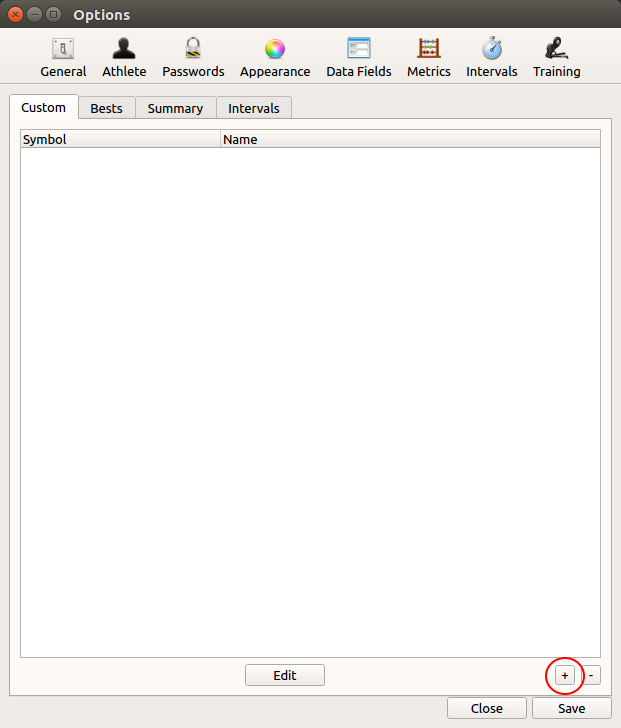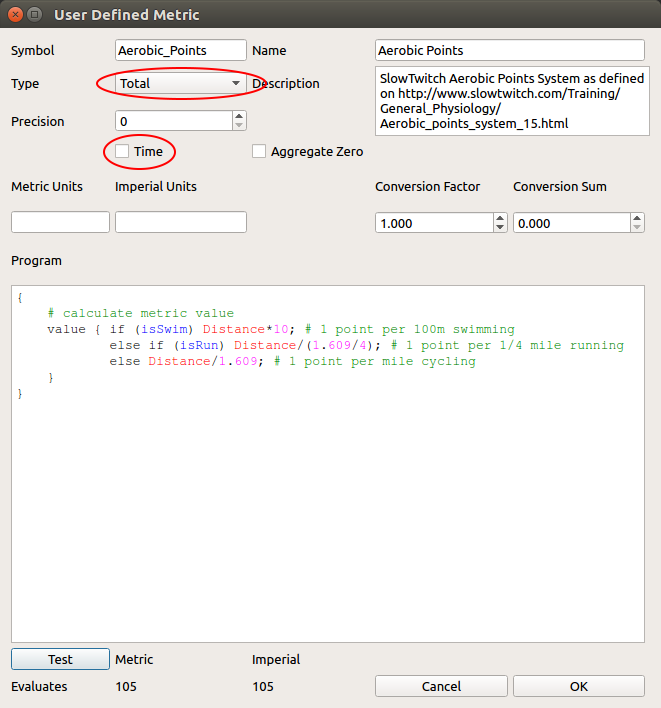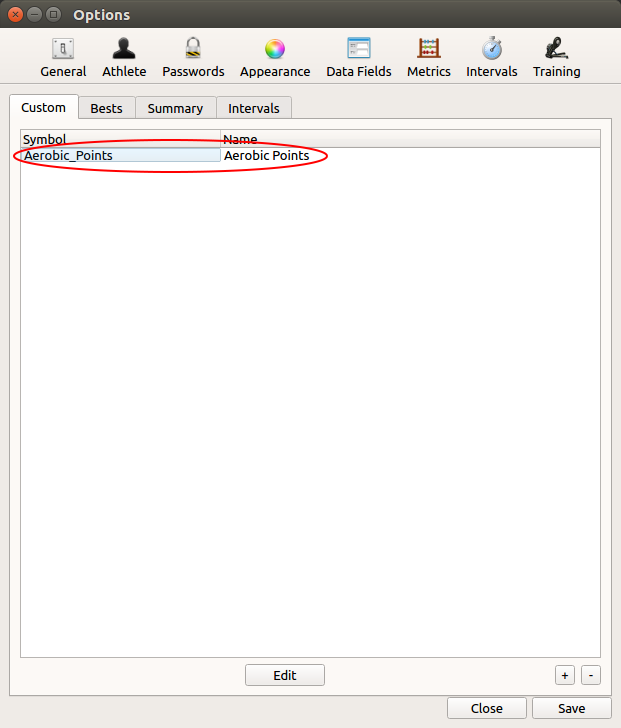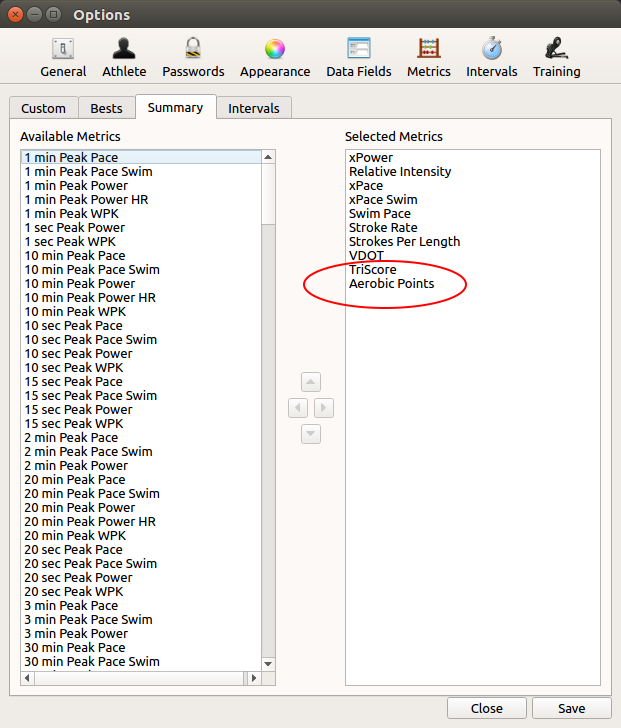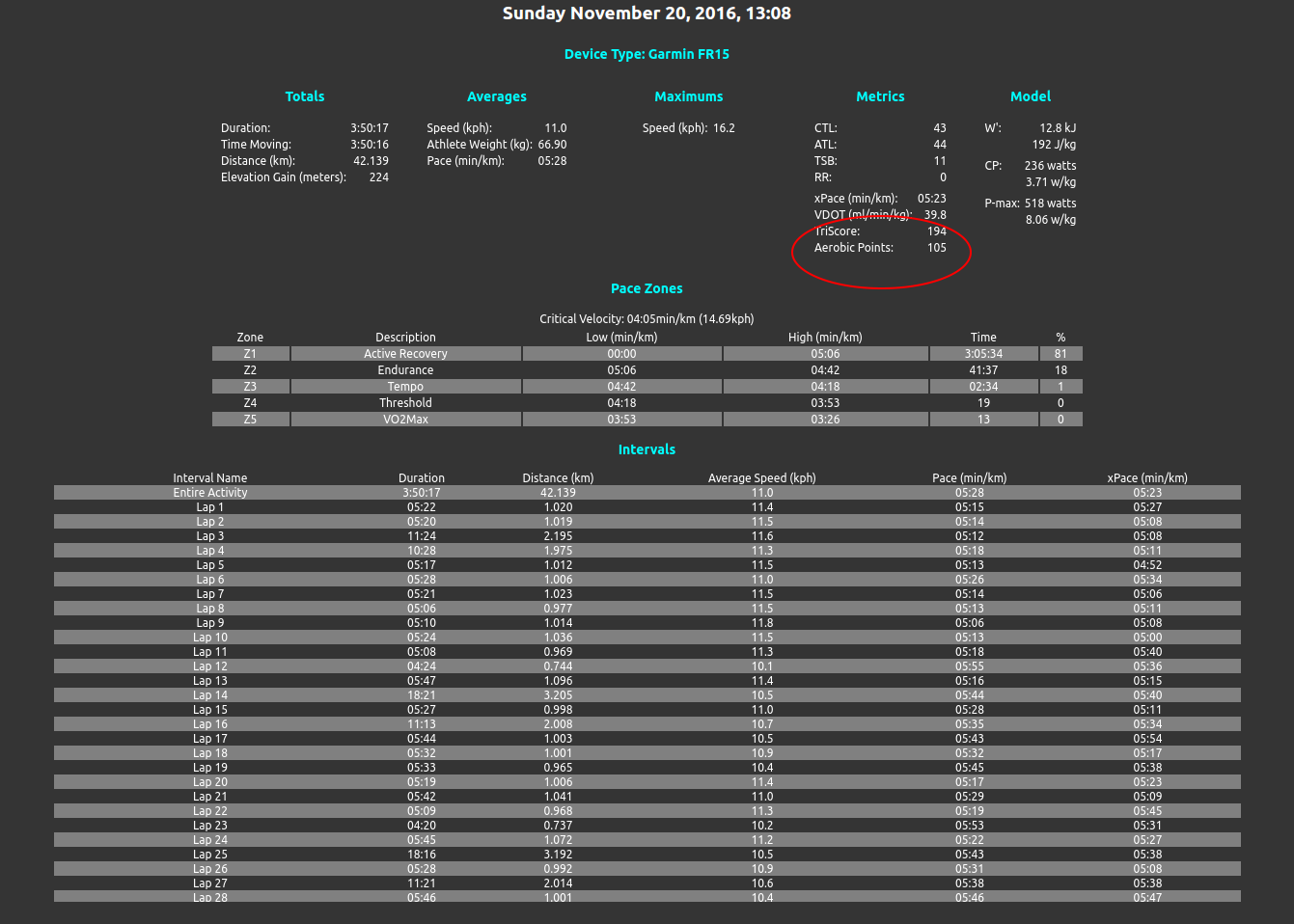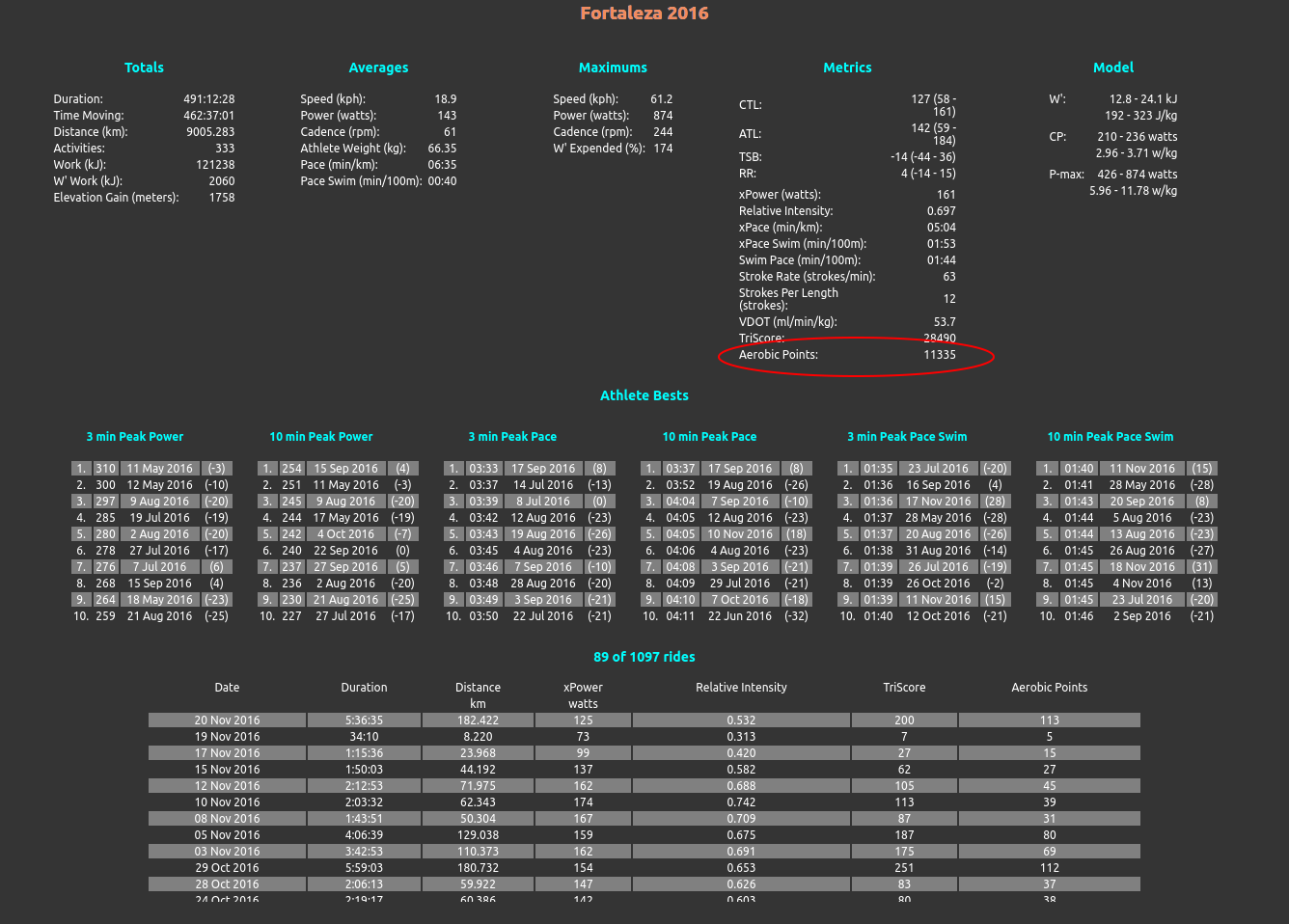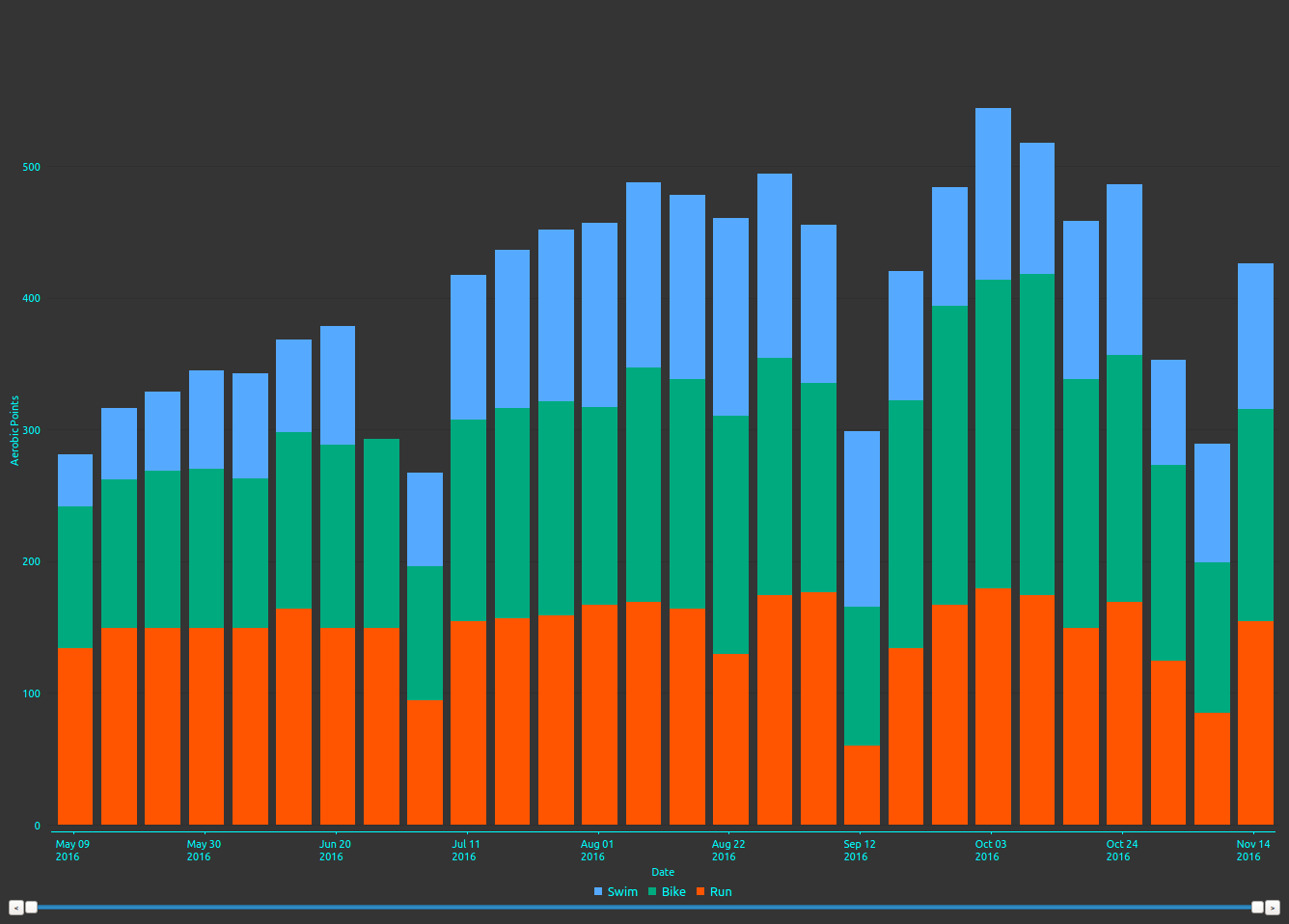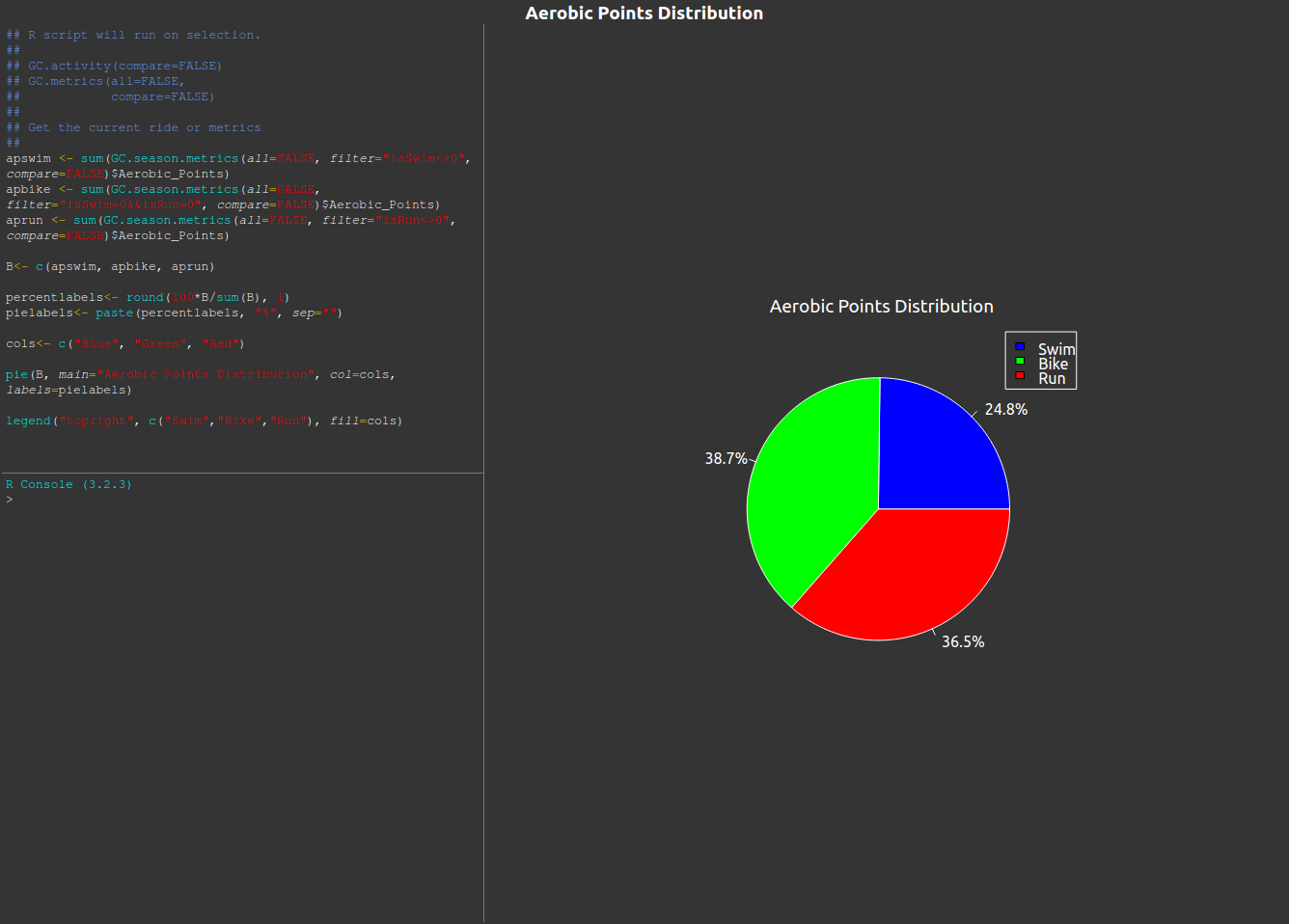For the users of GoldenCheetah willing to track Slowman’s Aerobic Points the latest version (3.4) allows to define Custom Metrics which can be used for that purpose:
To define the new metric go to Tools>Options>Metrics>Custom on Windows/Linux or Preferrences>Metrics>Custom on Mac and press (+):
Enter the metric definition, to avoid typing you can copy&paste the following formula to the program box:
{
calculate metric value
value { if (isSwim) Distance*10; # 1 point per 100m swimming
else if (isRun) Distance/(1.609/4); # 1 point per 1/4 mile running
else Distance/1.609; # 1 point per mile cycling
}
}
Also be sure to select Total as Type and clear the Time checkbox, the button Test can be used to compute the metric on the selected activity, Ok to confirm.
Now you have the metric defined, press Save to confirm, this will compute the new metric on all your existing activities, is a one time process which may take a while depending on your history and computer power.
Now you can add the new metric to your Summary Metrics:
After save it will be shown on Summary for the selected activity on Activities view:
to be continued…
